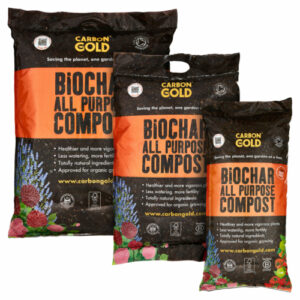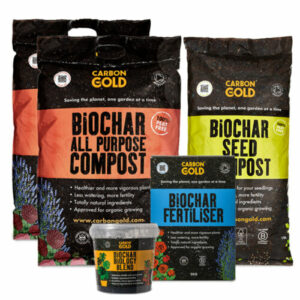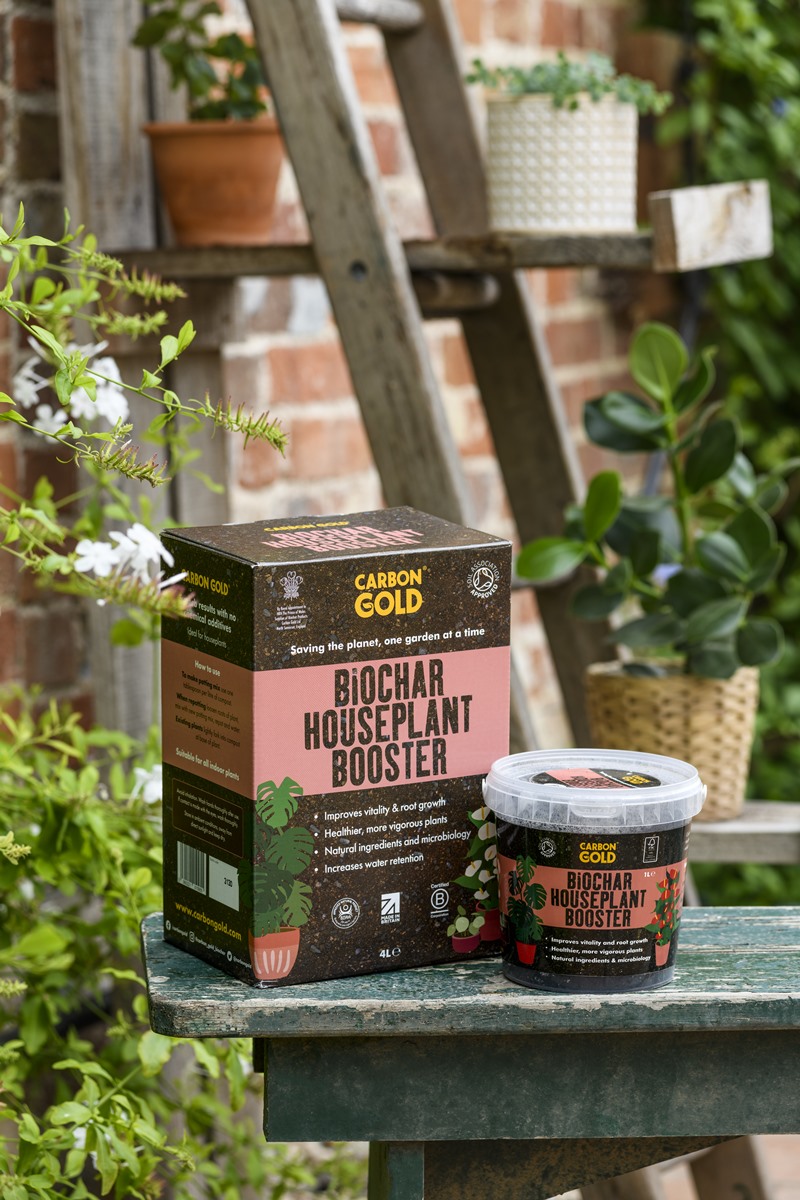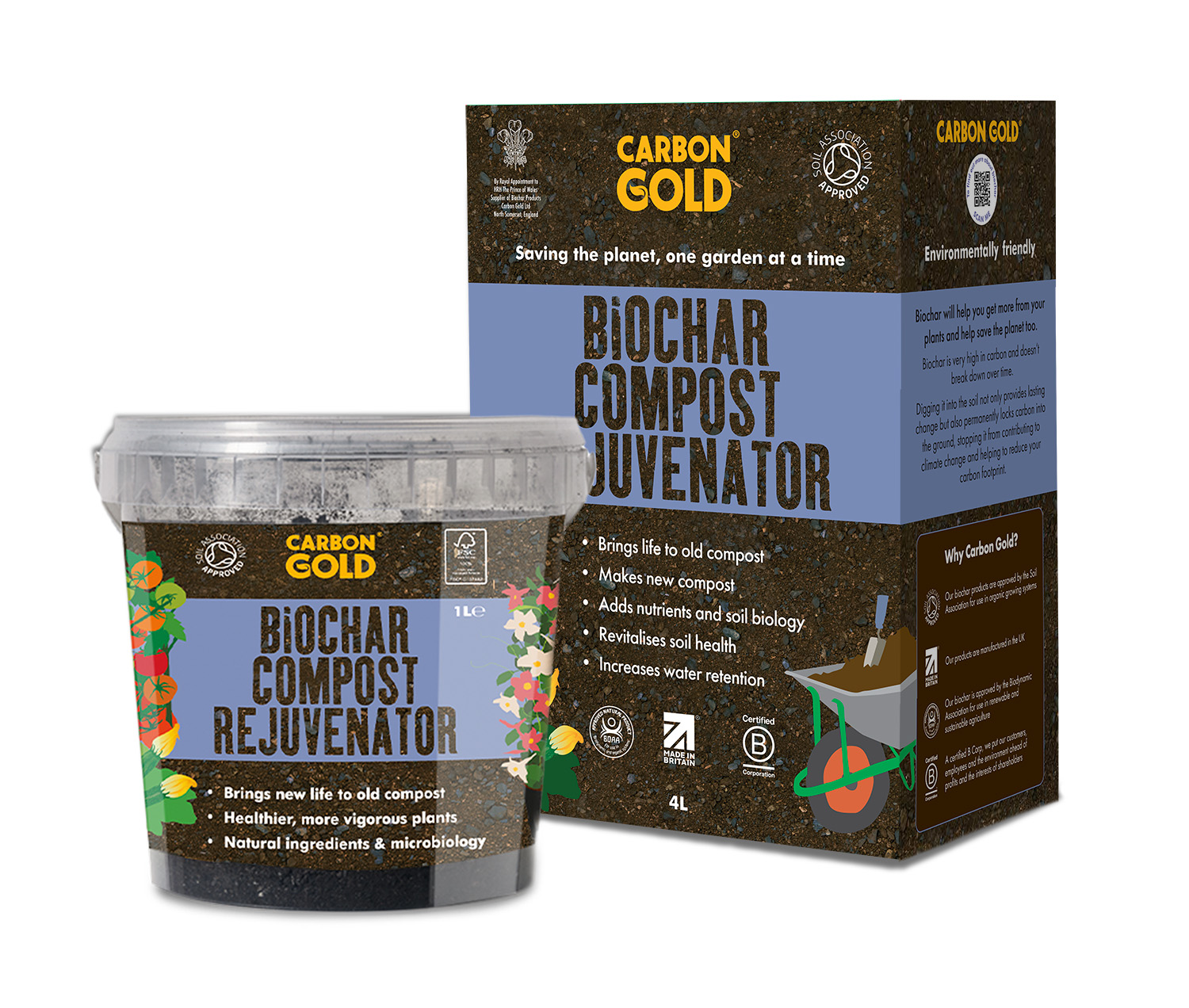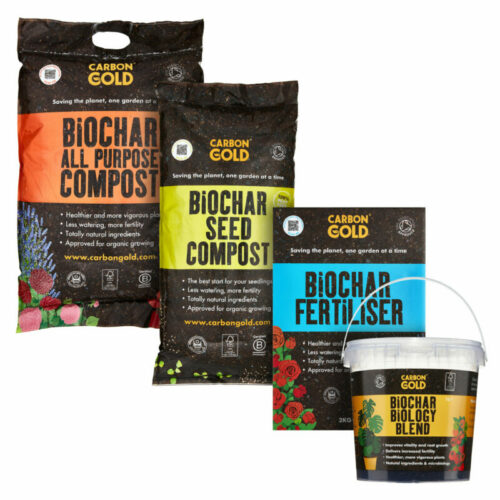What is biochar?
Biochar: the oldest new thing you've never heard of

What is biochar?
Researchers have found that Amazonian indigenous people had been utilising biochar for thousands of years. The unique fertility of “Terra Preta” has been known by locals for centuries, but it was largely unknown outside of the Amazon until a scientist named Wim Sombroek started researching it extensively. His enthusiasm for Terra Preta or Amazon soil caused interest in developing “Terra Preta Novam” to arise, which became known as biochar. Terra Preta, also known as “dark earth” soils are more nutrient dense and have a high phosphorus level, higher cation exchange capacity, pH and base saturation than surrounding soils.
HOW IS BIOCHAR MADE & WHAT IT ITS LIFECYCLE?
What is the definition of biochar? Carbon rich biochar is a specific type of charcoal that is made by pyrolysis, which is when an organic matter like wood chips is heated in the absence of oxygen. Purity-wise, it does not degrade, so it permanently improves the soil quality, so the life cycle of biochar continues for centuries. It is the pyrolysis process that gives the biochar its physical attributes include being black, lightweight, fine-grained and having a large surface area. The production of biochar is known as a carbon-negative process as well as a carbon sink because it reduces the levels of CO2 in the atmosphere. When making biochar, the unstable decaying plant material is converted into a more stable form before storing it within the biochar itself. Once biochar, an organic material, is put back into the ground it can last for thousands of years.
IMPROVING SOIL HEALTH & FERTILITY USING BIOCHAR
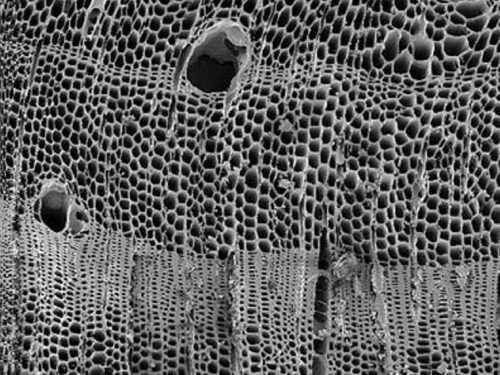
One of the most common uses for biochar is as a natural soil improvement aid. and can have a beneficial effect on soil conditions. The use of biochar can improve soil health by increasing nutrient retention and water filtration as well as enhancing beneficial soil microbes, just like the terra Preta soils of the Amazon. Additionally, biochar can help to reduce compaction and increase drainage in soils. Biochar is also beneficial for soil health and fertility. This is because biochar can hold onto nutrients and moisture, making it available for plants to use.
Additionally, biochar helps to improve soil structure which leads to better drainage and aeration. When enriched biochar is added to soil, it helps to improve the compaction of the soil while also increasing the ability to hold onto water and nutrients. This makes biochar an ideal amendment for both agricultural and horticultural applications as it leads to improved plant responses and plant health that are better able to withstand drought conditions and naturally improve the surrounding soil.
Soil degradation is a major concern in agriculture globally. To address this burgeoning problem, researchers suggested applying biochar to remediate both degraded and contaminated soils
Some of the ways that biochar may help improve soil quality include enhancing soil structure, decreasing acidity in soil, reducing nutrient and nitrogen leaching, improving porosity of the soil, increasing water retention. improving microbial populations by using the biochar as a refugia, amongst others.
Biochar also has benefits for use in home composting, as well as reducing greenhouse gas emissions, biochar also naturally speeds up the composting process by promoting microbial activity and helps to reduce bulk density, odour and ammonia losses.
Biochar is an excellent feedback-loop technology for reducing carbon emissions by sequestering CO2, as it also reduces the need for chemical fertilisers and improves soil fertility. The enhanced soil fertility promotes plant growth, which consumes CO2. Biochar’s many advantages in terms of climate and agricultural systems that also make it a compelling tool for regenerative farming.
IS BIOCHAR SUSTAINABLE?
Biochar is a sustainable way to improve soil health and fertility, while also reducing greenhouse gas emissions.
Biochar is the key to a healthy and sustainable garden. By using Carbon Gold biochar products, you can change your soil for the better by improving water and nutrient retention, increasing microbial activity, and fostering plant growth. Furthermore, adding biochar to soil helps with carbon sequestration which reduces greenhouse gas emissions overall.
USING BIOCHAR FOR CLIMATE CHANGE MITIGATION.
Biochar can mitigate climate change in several ways. First, biochar sequesters carbon dioxide from the atmosphere. Second, biochar is a sustainable way to improve soil health and fertility. This is because biochar can hold onto nutrients and moisture, making it available for plants to use. Overall, the use of biochar is beneficial for the environment and agriculture.
Biochar is made from an organic material and sequesters carbon in the soil, which reduces atmospheric concentrations of greenhouse gases like carbon dioxide (CO2). By offsetting emissions of these gases, biochar can help to mitigate climate change. In addition, biochar can also improve soil health and productivity, making it a sustainable and environmentally friendly amendment for agriculture.
Biochar can help to reduce levels of nitrous oxide, a powerful greenhouse gas, in the atmosphere. This is because biochar can act as a ‘sink’ for nitrous oxide, preventing it from being released into the atmosphere. Additionally, biochar can help to improve soil health and fertility, which can, in turn, lead to higher levels of nitrogen in the soil. This means that less nitrous oxide is produced when biochar is added to the soil. In conclusion, biochar is a sustainable way to reduce nitrous oxide emissions and improve soil health and fertility
THE ENVIRONMENTAL IMPACTS OF BIOCHAR
Biochar is an environmentally-friendly material who’s positive effects can help improve the world around us and is a versatile tool that can help us solve many of the world’s most pressing problems. For instance, the production process used to produce biochar may help sequester a billion tons of carbon annually and hold it in the soil for thousands of years. Also biochar can also be an energy source as clean and renewable energy is generated as a by-product during the biochar production process, which may be utilised as an alternative to burning fossil fuels and has exacerbated global warming by adding greenhouse gases to the atmosphere. With our biochar 3kg of carbon dioxide permanently sequestered for every 1kg that is put in the ground, which reduces greenhouse gases.
What's in our Enriched Biochar
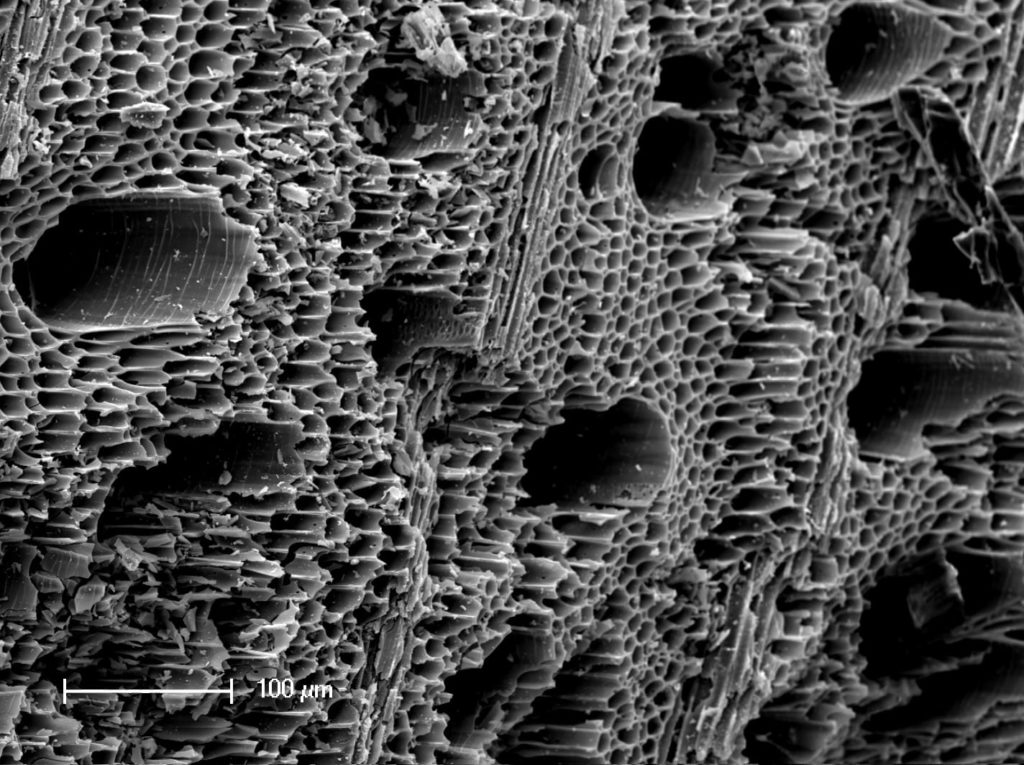
Biochar
A stable form of soil carbon with a naturally porous structure which improves aeration, water-holding capacity and nutrient retention of soils and acts as a refuge for beneficial soil microbiology. The building block of resilient soils.
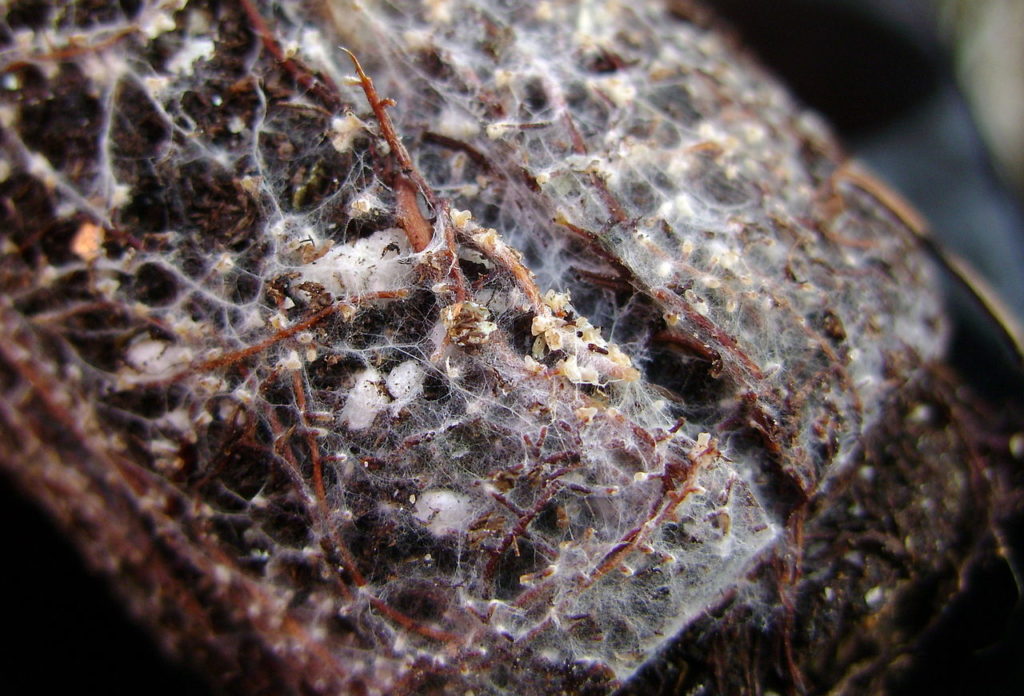
Mycorrhizal Fungi
A natural soil fungi that form a symbiotic partnership with plants, acting as a secondary root system while using the biochar as a refuge.
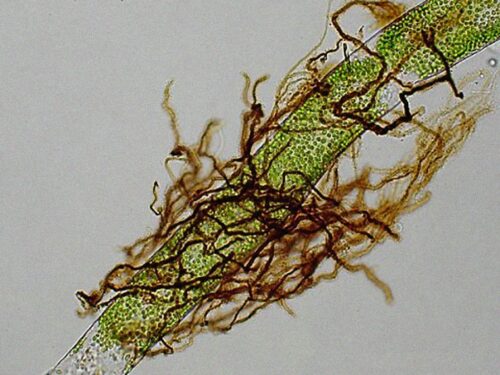
Trichoderma
An antagonistic type of fungi that feed on soilborne pests, in defence of their host plant's root system, housed inside the biochar.
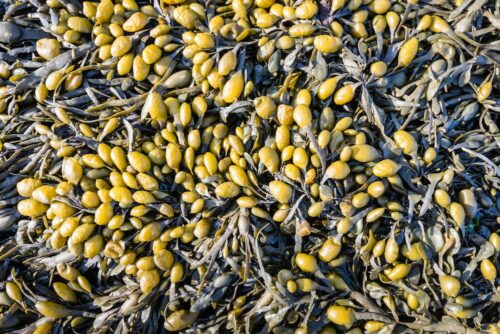
Seaweed
Filled with trace minerals that are good for healthy plant stems and leaves.
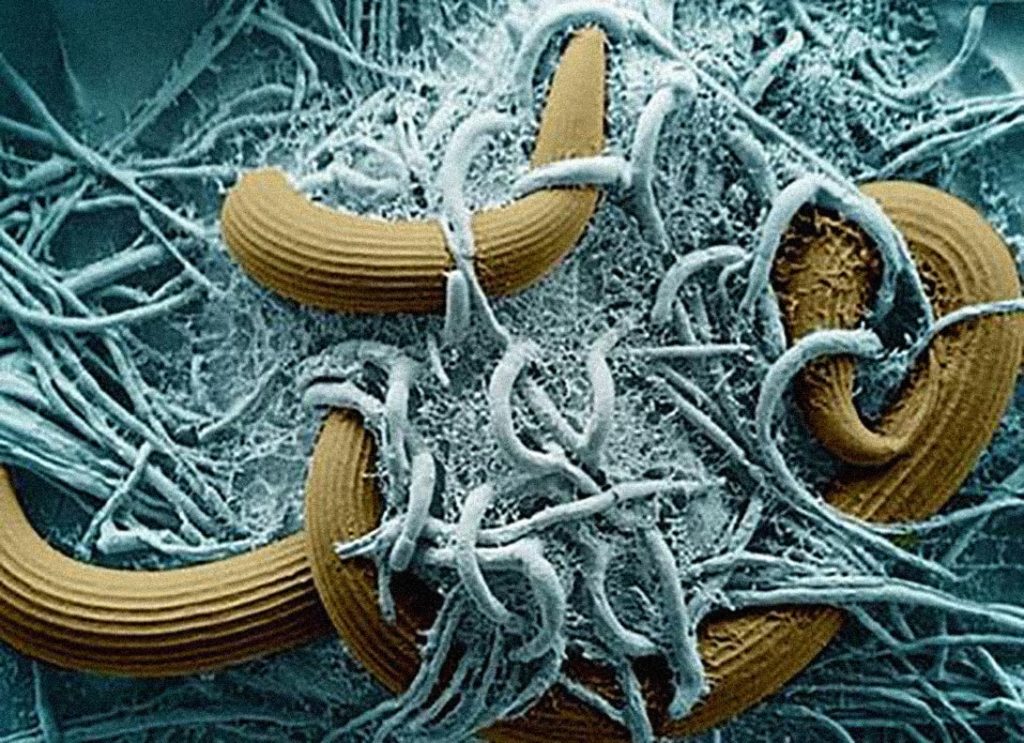
Wormcasts
Full of all the healthy bacteria and humic compounds that roots need to stay healthy.


Benefits of Enriched Biochar
Easy to Use
It's easy to apply and, because of its water holding qualities, it means less maintenance of plants, crops and lawns. It also means you'll save a bit on those water bills.
Permanent Effects
Biochar is so high in carbon that it doesn't break down over time, meaning one application is all you need to permanently improve your soil.
Environmentally Friendly
1 tonne of biochar in the ground is the equivalent of 3 tonnes of carbon dioxide permanently sequestered from the atmosphere!
Improves Plant Health
Enriched biochar is proven to boost the health and vitality of nearly every type of plant, and healthier plants are stronger and more productive!
A Biochar Product For Every Task
Because biochar works by improving plant health, it naturally has a wide range of applications.
Popular Biochar Products
£5 - £50 Gift Vouchers
Are your friends and family keen or budding organic gardeners or want to try eco-conscious…
Biochar Tree Care Bundle
Are you planting new trees or wanting to give your existing trees a boost? Scientifically…
Biochar All Purpose Compost
What makes Carbon Gold Biochar All Purpose Compost so impressive is that its organic and…
your Biochar
your Biochar
your Biochar
£9.99
Biochar Outdoor Planting Bundle
An all-round eco-gardening bundle containing all of our main products with 10% OFF and FREE…
Biochar Houseplant Booster
Are your houseplants looking a bit tired, and in need of some love? Our Houseplant…
your Biochar
your Biochar
£9.99
Biochar Essentials Bundle
This Biochar Essentials Bundle is the perfect starter pack, containing our Biochar All Purpose…
3 Tub Pick and Mix Tub Bundle
Easy, convenient and flexible; our Pick & Mix bundles are designed to give you the…
£29.97
Biochar Compost Rejuvenator
Our remarkable compost additive allows you to recycle & reuse your existing compost or grow…
your Biochar
your Biochar
£9.99
Learn about uses and benefits of biochar
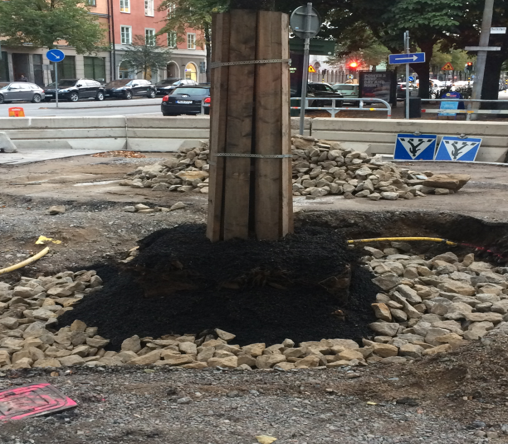
Stockholm Tree Pits
Category: Tree Care
In 2014, Bjorn Embrén played a pivotal role in the creation of the Stockholm Tree Pit method. This system, initially…
Read MoreCarbon Gold
Biochar
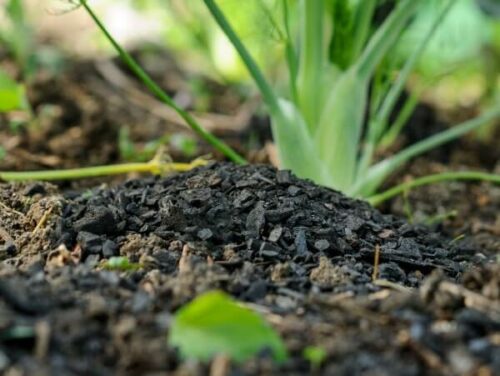

Brimstones, Buckthorn and Bluebells
Category: FAQs, Gardening Tips, Guides
Butterflies in February?! It was only a couple of weeks ago that the country was hunkering down beneath an onslaught…
Read MoreCarbon Gold
Biochar


Houseplants in the Bedroom
Category: FAQs, Garden and Home, Guides
We all know that houseplants have a huge positive impact on health and wellbeing – both physically and mentally. They…
Read MoreCarbon Gold
Biochar



